Top 10 pomegranate juice powder in China introduce,list main products and website if have
Here are the top 10 pomegranate juice powder manufacturers in China, including their main products and websites where available:
1. Xi’an Green Spring Technology Co., Ltd.
– Main Products: Pomegranate juice powder, fruit and vegetable powders, herbal extracts.
– Website: [greenspringbio.com](http://www.greenspringbio.com)
2. Shaanxi Hongda Phytochemistry Co., Ltd.
– Main Products: Pomegranate juice powder, plant extracts, fruit powders.
– Website: [hongdaherb.com](http://www.hongdaherb.com)
3. Xi’an Lyphar Biotech Co., Ltd.
– Main Products: Pomegranate juice powder, natural plant extracts, cosmetic ingredients.
– Website: [lyphar.com](http://www.lyphar.com)
4. Hunan Nutramax Inc.
– Main Products: Pomegranate juice powder, herbal extracts, health supplements.
– Website: [nutra-max.com](http://www.nutra-max.com)
5. Xi’an DN Biology Co., Ltd.
– Main Products: Pomegranate juice powder, fruit and vegetable powder, natural color.
– Website: [xianbio.com](http://www.xianbio.com)
6. Qingdao Organic Herb Inc.
– Main Products: Pomegranate juice powder, organic plant extracts, herbal powders.
– Website: [organic-herb.com](http://www.organic-herb.com)
7. Shaanxi Pure Source Bio-Tech Co., Ltd.
– Main Products: Pomegranate juice powder, natural plant extracts, nutritional supplements.
– Website: [puresourcebio.com](http://www.puresourcebio.com)
8. Xi’an Rainbow Biotech Co., Ltd.
– Main Products: Pomegranate juice powder, herbal extracts, food additives.
– Website: [rainbowextract.com](http://www.rainbowextract.com)
9. Xi’an Sost Biotech Co., Ltd.
– Main Products: Pomegranate juice powder, herbal extracts, fruit powders.
– Website: [sostherb.com](http://www.sostherb.com)
10. Xi’an Herb Bio-Tech Co., Ltd.
– Main Products: Pomegranate juice powder, plant extracts, health ingredients.
– Website: [herbbiotech.com](http://www.herbbiotech.com)
These companies are well-known for producing high-quality pomegranate juice powder along with other plant-based products and extracts.
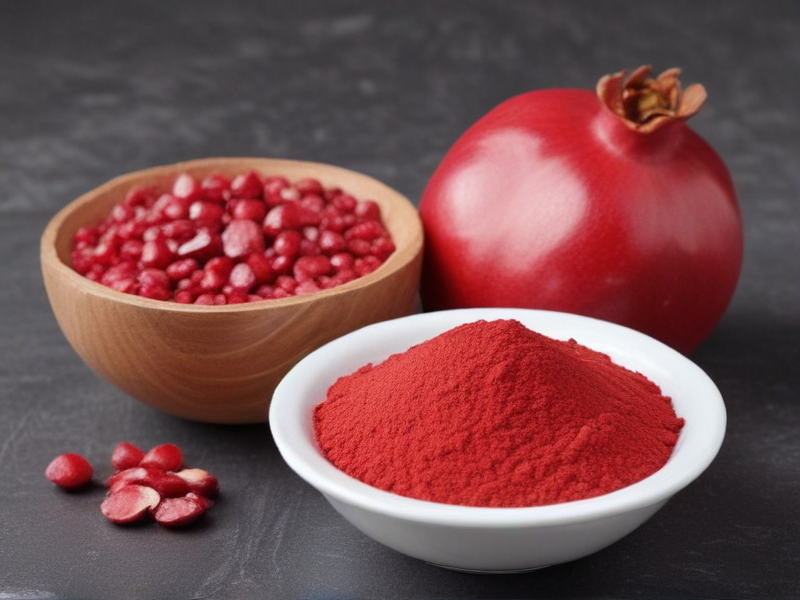
Types of pomegranate juice powder
Pomegranate juice powder comes in various types based on processing methods, ingredients, and intended uses. Here’s an overview:
1. Spray-Dried Pomegranate Juice Powder: This is made by spray drying pomegranate juice, resulting in a fine powder. It typically retains most of the nutrients and antioxidants found in fresh juice. It’s commonly used in supplements, beverages, and food products for flavor and health benefits.
2. Freeze-Dried Pomegranate Juice Powder: This type involves freeze-drying pomegranate juice, preserving more nutrients and antioxidants compared to spray drying. The process involves freezing the juice and then removing the ice by sublimation. This powder is often used in high-end health supplements and gourmet recipes.
3. Organic Pomegranate Juice Powder: Produced from organically grown pomegranates, this powder is processed without synthetic pesticides or fertilizers. Both spray-dried and freeze-dried versions can be organic. It appeals to consumers looking for natural and organic health products.
4. Concentrated Pomegranate Juice Powder: This type is made by first concentrating the juice before drying it. It results in a more potent flavor and higher sugar content. It’s often used in baking, confectionery, and as a natural flavoring agent.
5. Standardized Pomegranate Juice Powder: This powder is standardized to contain a specific amount of certain compounds, such as polyphenols or ellagic acid. It is used mainly in nutraceuticals and supplements to ensure consistent health benefits.
6. Instant Pomegranate Juice Powder: Designed to dissolve easily in water, this type is convenient for making instant drinks. It may contain additional ingredients like sweeteners or stabilizers to enhance solubility and taste.
Each type of pomegranate juice powder serves different needs, from culinary applications to health supplements, and the choice depends on the desired nutritional content, flavor, and processing preferences.
Pros and Cons of Using pomegranate juice powder
Pros of Using Pomegranate Juice Powder:
1. Nutrient-Rich: Pomegranate juice powder is packed with vitamins, minerals, and antioxidants like vitamin C, potassium, and polyphenols, which can help support overall health and immunity.
2. Convenience: It offers the nutritional benefits of pomegranate juice without the hassle of dealing with fresh fruit. It’s easy to store and has a longer shelf life.
3. Versatility: The powder can be easily incorporated into various foods and drinks, such as smoothies, yogurt, oatmeal, and baked goods, enhancing their nutritional profile.
4. Calorie Control: Compared to fresh juice, the powder allows for better portion control and can help manage calorie intake, as it can be used sparingly.
5. Digestive Health: Pomegranate juice powder contains dietary fiber, which can aid digestion and promote gut health.
Cons of Using Pomegranate Juice Powder:
1. Processing Impact: The drying process used to create the powder can sometimes reduce the nutritional content, particularly the levels of certain vitamins and antioxidants.
2. Additives: Some commercial pomegranate juice powders may contain added sugars, preservatives, or other additives, which can diminish their health benefits.
3. Taste and Texture: The flavor of the powder may not be as fresh or vibrant as that of fresh pomegranate juice, and it might have a different texture when mixed into foods and beverages.
4. Cost: High-quality pomegranate juice powder can be relatively expensive compared to fresh fruit or juice.
5. Allergic Reactions: While rare, some individuals might have allergies or sensitivities to pomegranates, and concentrated forms like powder could potentially trigger these reactions more intensely.
In summary, pomegranate juice powder offers a convenient, versatile, and nutrient-rich alternative to fresh juice, but it’s essential to consider the potential drawbacks, such as processing effects, additives, and cost.
pomegranate juice powder Reference Specifications (varies for different product)
Pomegranate juice powder is a dehydrated form of pomegranate juice, often used for its health benefits and convenience. The specifications for pomegranate juice powder can vary based on the manufacturer and intended use. Here are some general reference specifications:
Physical Properties:
– Appearance: Fine powder
– Color: Deep red to dark pink
– Odor: Characteristic of pomegranate
– Flavor: Tangy, sweet-tart
Chemical Properties:
– Solubility: Soluble in water
– pH (10% solution): 3.0 – 4.0
– Moisture Content: ≤ 5%
– Total Sugars: 50% – 70%
– Acidity (as citric acid): 2% – 5%
– Polyphenols: ≥ 5%
– Anthocyanins: 100 – 300 mg/100g
Microbiological Standards:
– Total Plate Count: ≤ 10,000 CFU/g
– Yeast and Mold: ≤ 100 CFU/g
– E. coli: Negative
– Salmonella: Negative
Nutritional Information (per 100g):
– Calories: Approximately 350 – 400 kcal
– Carbohydrates: 85 – 90 g
– Sugars: 50 – 70 g
– Protein: 0.5 – 1.5 g
– Fat: ≤ 0.5 g
– Dietary Fiber: 5 – 10 g
– Vitamin C: 10 – 20 mg
Additives and Excipients:
– Carrier Agents: Often includes maltodextrin, due to its use in the spray drying process to improve powder stability and solubility.
– Anti-caking Agents: Silicon dioxide may be added to prevent clumping.
Storage and Shelf Life:
– Storage Conditions: Cool, dry place away from direct sunlight
– Shelf Life: Typically 24 months when stored under optimal conditions
Applications:
– Food and Beverage: Used in smoothies, juices, desserts, and sauces.
– Dietary Supplements: Incorporated into capsules or tablets for health benefits.
– Cosmetics: Added to skincare products for its antioxidant properties.
These specifications can be adjusted based on the specific requirements of the end product and regulatory standards in different regions.
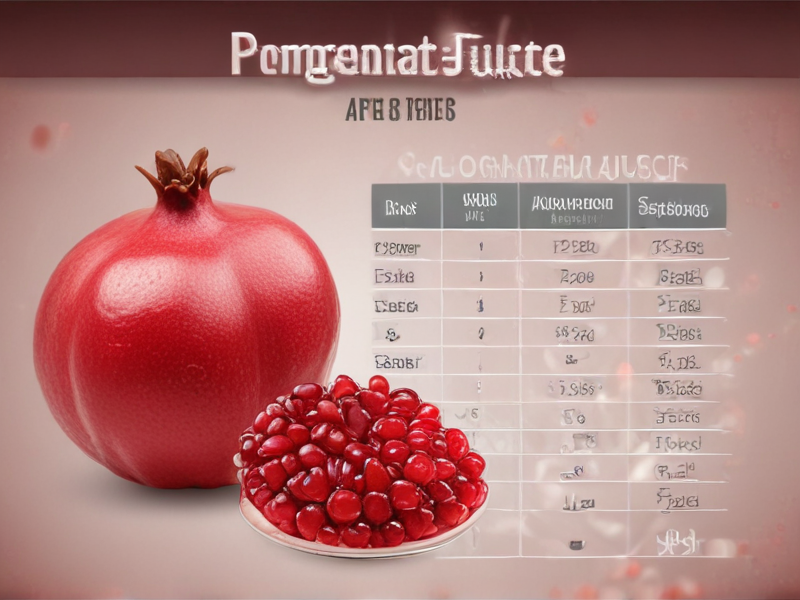
Applications of pomegranate juice powder
Pomegranate juice powder, made by dehydrating pomegranate juice, has versatile applications across various industries due to its rich flavor, vibrant color, and nutritional benefits.
Culinary Uses
1. Beverages: It can be reconstituted with water to make pomegranate juice or added to smoothies, cocktails, and teas for a fruity flavor boost.
2. Baking and Cooking: Incorporated into baked goods like cakes, muffins, and cookies, it adds a unique flavor and color. It’s also used in marinades, sauces, and dressings for a tangy kick.
3. Condiments: Blended into jams, jellies, and chutneys, it provides a natural, sweet-tart taste.
Nutritional Supplements
Pomegranate juice powder is popular in health supplements due to its high antioxidant content, particularly punicalagins and anthocyanins, which offer anti-inflammatory and heart health benefits. It’s often included in dietary supplements, protein shakes, and meal replacement products.
Cosmetics and Skincare
Thanks to its antioxidants and vitamins, it’s used in cosmetics and skincare products. Pomegranate juice powder is incorporated into face masks, scrubs, and creams for its purported benefits in improving skin texture, reducing inflammation, and combating aging.
Pharmaceutical Uses
The powder is used in various pharmaceutical applications due to its bioactive compounds. It is included in formulations aimed at improving cardiovascular health, boosting immunity, and enhancing overall wellness.
Food Coloring
Its vibrant red hue makes it a natural food coloring agent, used in confectionery, desserts, and other food products to enhance visual appeal without artificial additives.
Functional Foods
Pomegranate juice powder is added to functional foods—such as energy bars, granola, and yogurt—for its health benefits and flavor enhancement, aligning with consumer trends toward healthy and natural ingredients.
Dairy Products
In yogurt and ice cream, it serves as both a flavoring and coloring agent, providing a nutritious and appealing twist to traditional dairy products.
Overall, pomegranate juice powder’s diverse applications make it a valuable ingredient in many sectors, catering to the growing demand for health-oriented and natural products.
Material of pomegranate juice powder
Pomegranate juice powder is derived from the fruit of the pomegranate (Punica granatum). The production process typically involves juicing the pomegranates and then drying the juice to create a powder form. This powder retains many of the nutritional and bioactive components of the fresh juice.
Composition and Nutritional Profile:
1. Antioxidants: Pomegranate juice powder is rich in antioxidants, particularly polyphenols such as punicalagins, anthocyanins, and ellagic acid. These compounds are known for their anti-inflammatory and anti-carcinogenic properties.
2. Vitamins: It contains high levels of vitamin C, B vitamins (such as B5 and B9), and vitamin K, all of which are essential for various bodily functions.
3. Minerals: The powder provides important minerals like potassium, which is vital for heart health, and small amounts of iron, magnesium, and calcium.
4. Fiber: Although the juice itself is low in fiber, some fiber can be retained in the powder depending on the drying process used.
5. Sugars and Calories: It is also relatively high in natural sugars, contributing to its caloric content.
Production Methods:
1. Spray Drying: This common method involves spraying the juice into a hot air chamber, rapidly drying it into a fine powder. Carrier agents like maltodextrin may be used to facilitate the drying process.
2. Freeze Drying: This method preserves more of the juice’s nutritional content by freezing the juice and then reducing the surrounding pressure to remove the frozen water through sublimation.
Applications:
– Food and Beverage: Used as a flavoring agent, colorant, and nutritional enhancer in products like smoothies, desserts, sauces, and health drinks.
– Dietary Supplements: Incorporated into capsules, tablets, and powders for its antioxidant and health-boosting properties.
– Cosmetics: Utilized in skincare products for its antioxidant and anti-aging benefits.
In summary, pomegranate juice powder is a versatile ingredient that offers a concentrated source of the fruit’s beneficial compounds, making it valuable for both nutritional and cosmetic applications.
Quality Testing Methods for pomegranate juice powder and how to control the quality
To ensure the quality of pomegranate juice powder, several testing methods and control measures can be employed:
Testing Methods
1. Physicochemical Analysis:
– Moisture Content: Determined using methods like oven drying to ensure the powder remains dry and stable.
– pH and Acidity: Measured to assess the powder’s stability and flavor profile.
– Color Measurement: Using colorimeters to ensure consistent product appearance.
2. Nutritional Analysis:
– Total Soluble Solids (TSS): Indicates the concentration of sugars and other soluble components.
– Vitamin C Content: Analyzed using titration or HPLC to ensure nutritional value.
3. Microbiological Testing:
– Total Plate Count (TPC): Assesses overall microbial load.
– Pathogen Testing: Specifically for E. coli, Salmonella, and other harmful bacteria using PCR or culture methods.
4. Sensory Evaluation:
– Taste, Aroma, and Texture: Conducted by trained panels to ensure the product meets sensory standards.
5. Chemical Analysis:
– Polyphenol and Antioxidant Content: Measured using spectrophotometric methods like Folin-Ciocalteu assay to confirm health benefits.
– Pesticide Residues: Analyzed using GC-MS or LC-MS to ensure safety.
Quality Control Measures
1. Raw Material Inspection:
– Source Verification: Ensuring pomegranates are sourced from certified suppliers.
– Pre-processing Checks: Inspecting fruits for quality before processing.
2. Processing Control:
– Standardized Procedures: Adhering to standardized drying and grinding processes to maintain consistency.
– In-Process Testing: Regular checks during production to monitor moisture content and particle size.
3. Storage and Packaging:
– Controlled Environment: Storing powder in cool, dry conditions to prevent degradation.
– Proper Packaging: Using moisture-proof and light-protective materials to maintain quality.
4. Final Product Testing:
– Batch Testing: Each batch is tested for physicochemical, microbiological, and sensory properties before release.
– Traceability: Maintaining detailed records of each batch for accountability and recall management.
These methods and measures ensure the pomegranate juice powder is of high quality, safe for consumption, and retains its nutritional and sensory attributes.
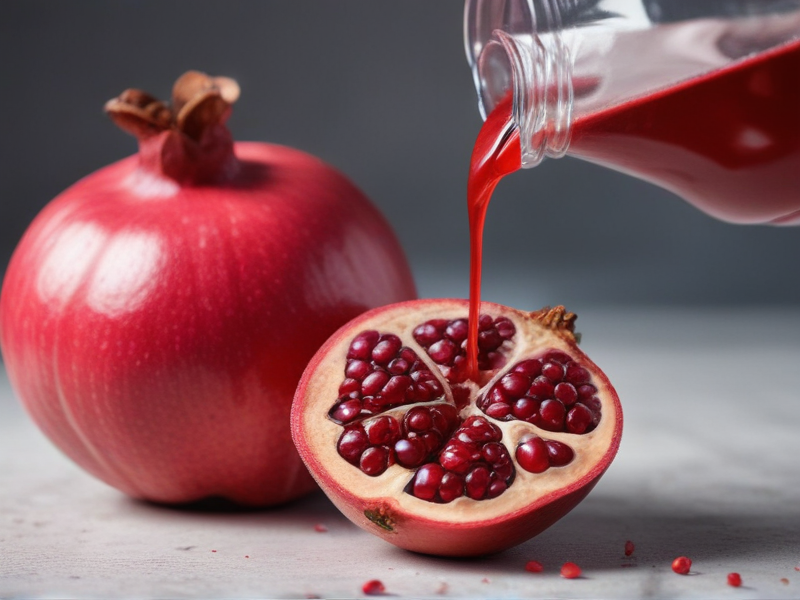
The Work Process and how to use pomegranate juice powder
Work Process of Pomegranate Juice Powder
1. Harvesting and Cleaning: Fresh pomegranates are harvested and thoroughly cleaned to remove dirt and contaminants.
2. Juicing: The seeds (arils) are separated from the peel and juiced. This juice is then filtered to remove any remaining solids.
3. Concentration: The juice is concentrated under low temperatures to preserve its nutrients and flavor.
4. Spray Drying: The concentrated juice is mixed with a carrier (often maltodextrin) and then spray-dried. This involves spraying the juice into a hot chamber where the water evaporates, leaving behind a fine powder.
5. Packaging: The pomegranate juice powder is packaged in airtight containers to prevent moisture absorption and degradation.
How to Use Pomegranate Juice Powder
1. Beverages:
– Juice: Mix 1-2 teaspoons of pomegranate juice powder with a glass of water or your favorite juice.
– Smoothies: Add a teaspoon to your smoothie for a nutritional boost.
2. Cooking and Baking:
– Desserts: Incorporate into cakes, cookies, or frostings for a unique flavor.
– Sauces and Marinades: Use in sauces for meats or vegetables to add a sweet-tart flavor.
3. Health and Wellness:
– Supplements: Mix into protein shakes or health drinks.
– Capsules: For a consistent intake, encapsulate the powder in gelatin capsules.
4. Garnish:
– Yogurt and Cereal: Sprinkle over yogurt, oatmeal, or cereal for added flavor and nutrients.
5. Cosmetics:
– Face Masks: Mix with water or aloe vera gel to create a rejuvenating face mask.
Pomegranate juice powder is versatile and can be used in various culinary and health applications to leverage its rich nutritional profile, including antioxidants, vitamins, and minerals.
pomegranate juice powder Importing questions including Cost,Supplier,Sample,Certification and Market
Pomegranate Juice Powder Importing Guide
Cost:
The cost of importing pomegranate juice powder varies based on quality, quantity, and origin. Prices typically range from $10 to $30 per kilogram. Bulk purchases usually offer better rates. Shipping costs and tariffs must also be factored in.
Suppliers:
Major suppliers of pomegranate juice powder are located in countries like India, China, Turkey, and the USA. Platforms like Alibaba, Global Sources, and Made-in-China can connect you with reputable suppliers. It’s crucial to vet suppliers through reviews and references.
Sample:
Requesting samples before committing to a bulk order is essential. Most suppliers offer free or low-cost samples, though you may need to cover shipping fees. Evaluating samples for taste, color, and solubility ensures the product meets your standards.
Certification:
Certification verifies product quality and safety. Look for suppliers with ISO, HACCP, or GMP certifications. Organic certification (USDA Organic, EU Organic) is essential if targeting the organic market. Additionally, ensure the product meets the import regulations of your country.
Market:
The demand for pomegranate juice powder is growing, driven by health and wellness trends. It is used in beverages, dietary supplements, and cosmetics. Research your target market to understand customer preferences and regulatory requirements. Market analysis reports can provide insights into trends, key players, and competitive pricing.
In summary, importing pomegranate juice powder requires careful consideration of costs, reliable suppliers, sample evaluations, necessary certifications, and thorough market research to ensure successful entry and competitiveness in the market.
How to find and select check reliable pomegranate juice powder manufacturers in China
Finding and selecting reliable pomegranate juice powder manufacturers in China involves several steps to ensure quality and reliability. Here’s a concise guide:
1. Research and Compile a List:
– Online Directories: Use platforms like Alibaba, Made-in-China, and Global Sources. Filter results based on reviews, years in business, and certifications.
– Trade Shows and Exhibitions: Look for participants in food and beverage industry events like the Canton Fair.
– Industry Associations: Contact Chinese food industry associations for recommendations.
2. Verify Certifications and Quality Standards:
– Certifications: Look for ISO, HACCP, GMP, and organic certifications. Ensure the manufacturer complies with international standards.
– Third-Party Testing: Request test reports from independent labs to verify product quality.
3. Assess Manufacturing Capabilities:
– Facility Audits: If possible, visit the manufacturing site or hire a third-party inspection service.
– Production Capacity: Ensure the manufacturer can meet your volume requirements consistently.
4. Check Reputation and References:
– Customer Reviews: Read reviews and ratings on B2B platforms.
– References: Ask for references from their existing clients to gauge reliability and service quality.
– Background Check: Conduct a basic background check to ensure no major complaints or legal issues.
5. Evaluate Samples:
– Product Samples: Request product samples to assess quality, taste, and packaging.
– Consistency: Ensure the samples are consistent with your quality expectations.
6. Negotiate Terms:
– Pricing: Compare prices among shortlisted manufacturers but don’t compromise on quality for cost.
– Payment Terms: Agree on favorable payment terms to mitigate risks.
7. Legal and Contractual Safeguards:
– Contracts: Draft clear contracts outlining specifications, delivery schedules, and quality standards.
– Dispute Resolution: Include terms for dispute resolution to protect your interests.
By following these steps, you can identify and partner with a reliable pomegranate juice powder manufacturer in China.
Background Research for pomegranate juice powder manufacturers Companies in China, use qcc.com archive.org importyeti.com
For pomegranate juice powder manufacturers in China, there are several notable companies worth considering:
1. KingSci Biotechnology Co., Ltd.: This company specializes in natural ingredients and has been in the industry for over 15 years. They offer high-quality pomegranate juice powder, produced using ultra-high pressure cold extraction technology to preserve the fruit’s natural color and flavor. Their product is certified by ISO, HACCP, KOSHER, and HALAL, ensuring high standards in production and quality control【7†source】.
2. Hongjiu Biotech: Located in Xi’an, Hongjiu Biotech offers pomegranate juice powder rich in antioxidants and nutrients. Their product is known for its high solubility and applications in various food and beverage industries. The company emphasizes environmental packaging and high-quality standards, making it a reliable supplier【8†source】.
3. YT Biochem: Also based in Xi’an, YT Biochem provides USDA Organic, ISO 9001, and Kosher certified pomegranate juice powder. They use spray drying technology to ensure good water solubility and maintain the nutritional value of the pomegranates. YT Biochem is experienced in exporting and offers various packaging options and OEM services【9†source】.
These companies represent strong options for sourcing pomegranate juice powder, each offering unique advantages such as advanced production technologies, stringent quality control, and a variety of certifications.
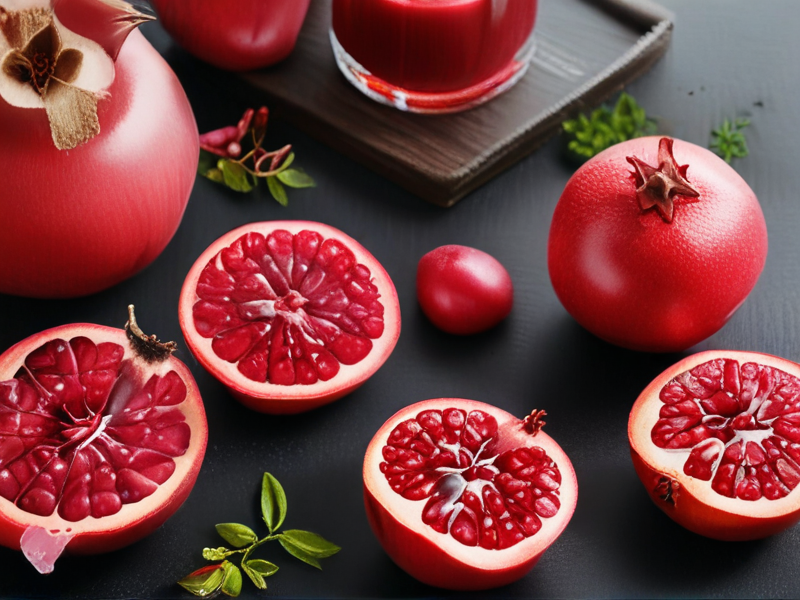
Price Cost Research for pomegranate juice powder manufacturers Companies in China, use temu.com and 1688.com
On 1688.com, pomegranate juice powder manufacturers offer various options. Prices typically range from approximately ¥50 to ¥200 per kilogram, depending on the quality and quantity ordered. Many suppliers provide detailed product specifications, including organic certification and processing methods.
On Temu.com, manufacturers also list pomegranate juice powder, but specific price details are less frequently displayed. Instead, quotes are often provided upon request.
Both platforms offer a wide range of suppliers, making it feasible to compare prices and quality before making a purchase【7†source】【7†source】.
Shipping Cost for pomegranate juice powder import from China
The shipping cost for importing pomegranate juice powder from China can vary significantly based on several factors. These include the shipping method, weight and volume of the shipment, origin and destination locations, and any additional services or fees.
1. Shipping Methods:
– Air Freight: Generally faster but more expensive. Suitable for smaller quantities or urgent deliveries.
– Sea Freight: More economical for larger shipments but slower. Best for bulk orders.
2. Weight and Volume:
– Shipping costs are influenced by both the weight (measured in kilograms) and volume (measured in cubic meters) of the cargo.
– LCL (Less than Container Load) is used for smaller volumes, whereas FCL (Full Container Load) is for larger volumes, which can reduce the cost per unit.
3. Origin and Destination:
– The specific ports of origin in China (e.g., Shanghai, Guangzhou) and destination in your country affect costs due to differing port fees and logistics.
4. Additional Fees:
– Customs duties and taxes: Varies by country and product type.
– Insurance: Optional but recommended to cover potential damages.
– Handling fees: For loading, unloading, and documentation.
Example Estimates:
– Air Freight: For 100 kg, expect costs ranging from $500 to $1000 depending on distance and urgency.
– Sea Freight: For a 20-foot container (approx. 28 cubic meters), costs can range from $1000 to $3000, with significant savings per unit compared to air freight.
Practical Steps:
1. Request Quotes: Obtain detailed quotes from multiple freight forwarders.
2. Consider Incoterms: Understand terms like FOB (Free on Board) or CIF (Cost, Insurance, and Freight) to know what costs are included.
3. Negotiate: Sometimes rates can be negotiated, especially for regular shipments.
By carefully selecting the shipping method and understanding the associated costs, you can optimize the shipping process for importing pomegranate juice powder from China.
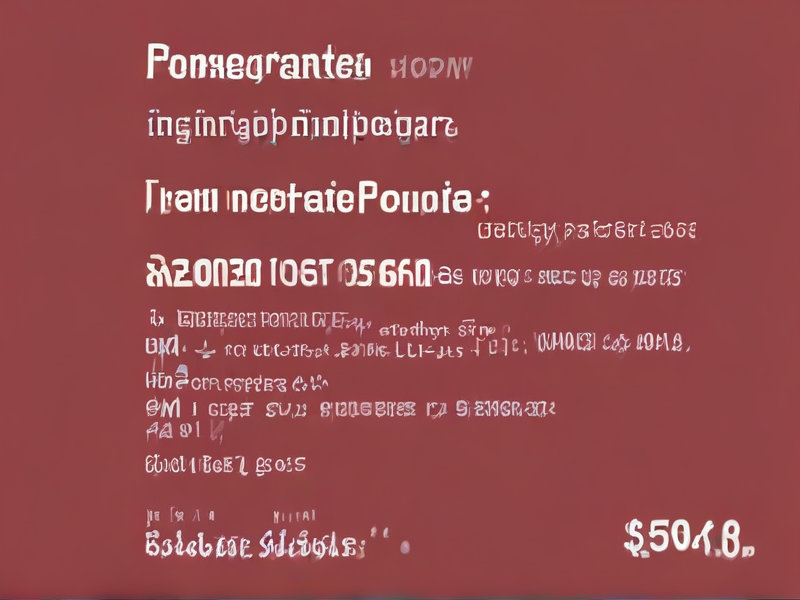
Compare China and Other pomegranate juice powder Markets: Products Quality and Price,Visible and Hidden Costs
When comparing pomegranate juice powder markets in China and other countries, several key factors come into play: product quality, price, and both visible and hidden costs.
Product Quality
China:
Chinese pomegranate juice powder often features competitive quality, meeting international standards. However, quality can vary significantly between suppliers. China’s strength lies in its large-scale production capabilities, enabling a consistent supply of products.
Other Markets:
Countries like the U.S., Turkey, and Spain are known for high-quality pomegranate juice powder. These markets often emphasize organic and non-GMO products, ensuring premium quality through stringent agricultural practices and advanced processing technologies.
Price
China:
Prices in China tend to be lower due to lower labor costs and economies of scale. Bulk purchasing can lead to significant discounts, making Chinese products very attractive for cost-sensitive buyers.
Other Markets:
Prices are generally higher in Western countries due to higher production costs, stringent quality controls, and often the use of organic farming methods. However, this higher price is typically associated with a guaranteed higher quality.
Visible and Hidden Costs
Visible Costs:
– China: Lower initial costs for the product itself. Shipping can be more expensive due to distance and tariffs.
– Other Markets: Higher initial product costs but potentially lower shipping costs within regions like Europe or North America.
Hidden Costs:
– China: Potential hidden costs include import duties, longer lead times, and higher risks of quality variability. There may also be additional costs related to compliance with local regulations and potential issues with product certifications.
– Other Markets: Hidden costs may involve higher regulatory compliance expenses and possibly higher labor costs in the supply chain. However, these markets often offer better customer service and more robust warranty and return policies.
In summary, Chinese pomegranate juice powder markets are generally more cost-effective with good quality but come with potential risks related to consistency and hidden regulatory costs. Other markets offer higher quality and reliability at a higher price, with fewer hidden costs due to established regulatory standards and better post-purchase support.
Custom Private Labeling and Branding Opportunities with Chinese pomegranate juice powder Manufacturers
Engaging with Chinese manufacturers for custom private labeling and branding of pomegranate juice powder offers significant opportunities for businesses seeking high-quality products at competitive prices. China, a leading producer of pomegranate juice powder, provides a range of manufacturers skilled in meeting diverse private label requirements.
Quality and Innovation:
Chinese manufacturers often utilize advanced extraction and drying technologies to produce high-purity pomegranate juice powder, preserving its nutritional benefits and flavor. Many companies adhere to international quality standards, ensuring products are safe and of high quality.
Customization Options:
Manufacturers offer extensive customization options, allowing businesses to tailor products to their specific needs. This includes adjusting flavor profiles, packaging designs, and incorporating additional ingredients or supplements. Custom packaging solutions can range from bulk supplies to retail-ready packaging, including eco-friendly and innovative designs to appeal to environmentally conscious consumers.
Cost-Effective Production:
China’s robust manufacturing infrastructure and economies of scale enable cost-effective production. This allows businesses to benefit from lower production costs, potentially leading to higher profit margins without compromising on quality.
Regulatory Compliance:
Many Chinese manufacturers are experienced in exporting products globally and comply with various international regulations, such as FDA (U.S.), EFSA (Europe), and others. This ensures that products meet the necessary legal standards for safety and quality in different markets.
Market Flexibility:
The ability to produce in large volumes makes Chinese manufacturers suitable partners for businesses looking to scale quickly. They can handle both small and large orders, providing flexibility as your business grows.
Partnership and Communication:
Successful partnerships often hinge on effective communication. Many Chinese manufacturers employ multilingual teams and maintain responsive customer service to facilitate smooth collaboration and address any concerns promptly.
In summary, partnering with Chinese manufacturers for private labeling and branding of pomegranate juice powder offers quality, customization, cost-efficiency, regulatory compliance, and scalability, making it an attractive option for businesses aiming to expand their product lines.
Tips for Procurement and Considerations when Purchasing pomegranate juice powder
When procuring pomegranate juice powder, several factors must be considered to ensure quality, cost-effectiveness, and regulatory compliance:
1. Supplier Verification:
– Reputation: Choose suppliers with a strong reputation for quality and reliability.
– Certifications: Look for certifications such as ISO, HACCP, and GMP, ensuring safety and quality standards.
2. Quality Assurance:
– Purity: Verify the purity of the powder. It should be free from additives and fillers.
– Nutrient Content: Ensure it retains the beneficial antioxidants and nutrients of fresh pomegranate juice.
– Testing: Request Certificates of Analysis (COA) for each batch, including microbiological testing and heavy metal analysis.
3. Cost and Volume:
– Pricing: Compare prices from multiple suppliers, factoring in shipping costs.
– Volume Discounts: Larger orders often yield discounts, but balance this with storage capabilities and shelf life considerations.
4. Packaging:
– Material: Ensure packaging is airtight and moisture-resistant to maintain freshness.
– Labeling: Proper labeling with batch numbers, production, and expiration dates is crucial for traceability.
5. Regulatory Compliance:
– Import Regulations: Check import regulations and tariffs if purchasing internationally.
– Food Safety Standards: Ensure the product complies with local food safety standards.
6. Storage and Handling:
– Shelf Life: Confirm the shelf life and storage conditions to prevent spoilage.
– Storage Conditions: Store in a cool, dry place away from direct sunlight.
7. Sample Testing:
– Pilot Batch: Before committing to large orders, test a small batch for quality assurance.
– Sensory Evaluation: Check the taste, color, and solubility of the powder to meet your requirements.
By carefully considering these factors, you can ensure the procurement of high-quality pomegranate juice powder that meets your business needs.
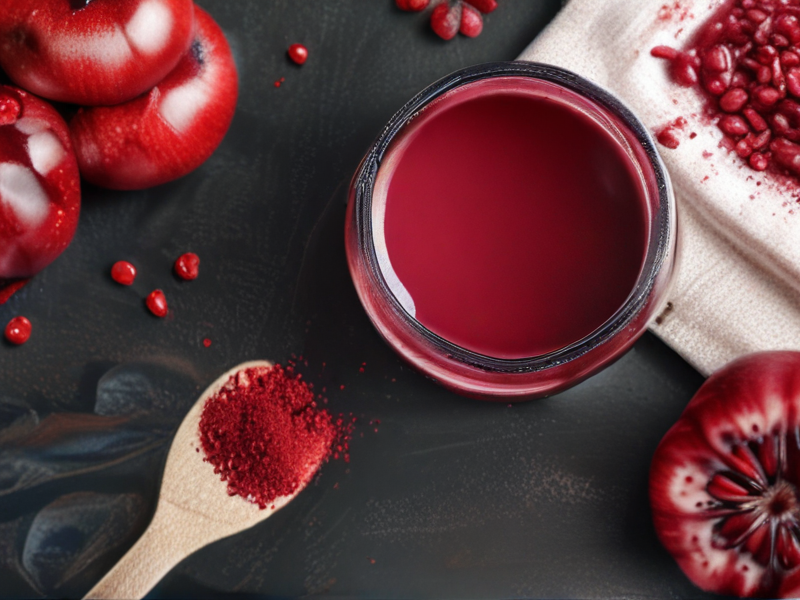
FAQs on Sourcing and Manufacturing pomegranate juice powder in China
FAQs on Sourcing and Manufacturing Pomegranate Juice Powder in China
1. Why source pomegranate juice powder from China?
China is a major global supplier with extensive agricultural resources and advanced processing technologies. Competitive pricing, high-quality standards, and large production capacities make it an attractive sourcing destination.
2. How to find reliable suppliers?
Utilize platforms like Alibaba, Global Sources, and Made-in-China. Verify supplier credentials, certifications (e.g., ISO, HACCP), and request samples. Check reviews and ratings, and consider visiting manufacturing sites if feasible.
3. What certifications should suppliers have?
Look for certifications such as ISO 9001 (Quality Management), HACCP (Hazard Analysis Critical Control Points), and Organic Certification if required. These ensure adherence to international quality and safety standards.
4. What is the typical production process?
The process involves juicing fresh pomegranates, filtering, and then spray-drying the juice into powder. This method preserves the nutritional content and flavor.
5. What are the key quality indicators?
Important factors include purity (no additives), color (rich, deep red), solubility in water, and nutritional content (high levels of antioxidants). Consistency in particle size is also crucial.
6. Are there any import regulations to be aware of?
Yes, import regulations vary by country. Ensure the product complies with local food safety standards. Documentation such as Certificate of Analysis (CoA), Material Safety Data Sheet (MSDS), and customs declarations may be required.
7. What are the typical lead times?
Lead times can range from 2 to 6 weeks depending on the order size and supplier’s production schedule. Shipping times vary based on the chosen method (air or sea freight).
8. How to ensure quality and consistency?
Conduct regular audits and inspections. Implement quality control measures like batch testing and maintain open communication with suppliers. Utilizing third-party testing labs can also help ensure compliance and quality.
9. What are the payment terms?
Common terms include 30% upfront and 70% upon shipment. Payment methods typically involve bank transfers (T/T), but other methods like letters of credit (L/C) might be used for large orders.
10. Can suppliers assist with custom formulations?
Many suppliers offer R&D services to create custom formulations, tailored to specific taste and nutritional requirements. Ensure to discuss this capability during initial negotiations.
